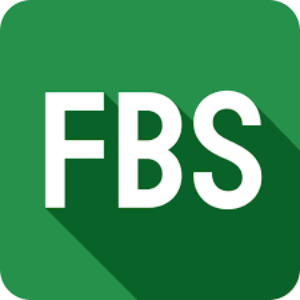
Navigating the financial markets can often feel like steering through a labyrinth. For those considering swing trading for beginners, selecting the right broker marks the first critical step toward success. After all, swing trading demands tools and flexibility along with a seamless trading environment. Not every platform fits the needs of a novice who is just beginning to uncover what swing trading truly involves.
Finding the ideal mix of educational materials, affordable prices, and user-friendly platforms can have a significant impact on a person’s early experiences, as has been previously mentioned in numerous trading circles. It may also have an indirect effect on the outcomes. The goal of this article is to help beginners find the best brokers for conducting their swing trades with ease.
5 Best Brokers for Swing Trading for Beginners
Here are the brokers that stand out for novices eager to master swing trading strategies for beginners:
| Broker | Key Features | Why It Is Ideal for Beginners |
|---|---|---|
|
TD
TD Ameritrade
|
Award-winning thinkorswim Educational content |
Top-tier resources for learning
|
|
About TD Ameritrade
TD Ameritrade offers an award-winning thinkorswim platform that provides powerful tools for swing traders. Their extensive educational content includes videos, articles, and webinars specifically designed to help beginners understand market movements and develop effective swing trading strategies.
|
||
|
IB
Interactive Brokers
|
Low commissions Advanced charting Global access |
Great for ambitious beginners
|
|
About Interactive Brokers
Interactive Brokers provides access to markets worldwide with competitive commission rates. While their platform may have a steeper learning curve, ambitious beginners will benefit from the advanced charting capabilities and extensive range of tradable assets, preparing them for more sophisticated trading in the future.
|
||
|
ET
eToro
|
Social trading Intuitive platform Fractional shares |
Learn by observing successful traders
|
|
About eToro
eToro’s social trading feature allows beginners to observe and even copy the trades of successful investors. The platform is intuitive and user-friendly, making it easy for newcomers to navigate. The ability to purchase fractional shares means beginners can start with smaller amounts of capital while learning swing trading techniques.
|
||
|
FI
Fidelity
|
No commissions Research tools |
Safe environment with strong support
|
|
About Fidelity
Fidelity offers commission-free trading for stocks and ETFs along with robust research tools that help beginners make informed decisions. Their excellent customer service is particularly beneficial for new traders who may have questions or need assistance. The platform provides a safe, beginner-friendly environment backed by a reputable financial institution.
|
||
|
WB
Webull
|
Commission-free Easy mobile app Free stock promotions |
Low barriers to entry for tech-savvy beginners
|
|
About Webull
Webull is perfect for tech-savvy beginners who prefer trading on mobile devices. The platform offers commission-free trading and frequently runs promotions that include free stocks for new accounts. Their streamlined interface and educational resources make it ideal for beginners looking for a low-cost entry point into swing trading.
|
||
What is Swing Trading for Beginners?
Before diving into the best brokers, it is vital to establish a solid foundation. What is swing trading for beginners? In simple terms, swing trading focuses on capturing medium-term gains within a stock or other financial instrument over a period of days or weeks. Unlike day trading, which involves buying and selling within a single session, swing traders allow time for trends to develop. This is what sets them apart from day traders. This is one of the features which makes swing trading
Industry veteran Alexander Elder once remarked, “Swing trading is the art of capturing the middle of the move. It is where real money is made without burning out the trader.” His words offer both encouragement and a note of caution: it is not without risks, but the rewards can be substantial.
Understanding the subtle differences between swing trading vs day trading for beginners is essential. While day trading demands full-day commitment and often higher stress levels, swing trading offers a less frenetic pace — ideal for those balancing careers or studies.
Key Factors to Consider Before Choosing a Swing Trading Broker
Choosing a broker tailored for swing trading stocks for beginners involves assessing several critical factors:
- Low Commissions: Fees can quickly erode profits, especially with frequent trades.
- Reliable Platforms: Technical analysis tools, real-time data, and user-friendly interfaces are must-haves.
- Educational Resources: Brokers offering swing trading courses for beginners or webinars can drastically shorten the learning curve.
- Regulation and Safety: Ensuring that the broker is regulated protects against fraud and misconduct.
There is another thing to keep in mind — the availability of demo accounts. For those learning how to start swing trading for beginners, practicing in a risk-free environment offers invaluable lessons.
Detailed Overview: 5 Best Brokers for Swing Trading for Beginners
There is another thing worth emphasizing: while the table offers a snapshot, each broker brings a unique flavor to the trading experience. Here is a more detailed exploration:
1. TD Ameritrade

Platform Highlights:
- Access to the powerful thinkorswim platform.
- Free, comprehensive educational library including videos, webinars, and courses.
- No commission fees on stocks and ETFs.
Why It Stands Out for Beginners:
TD Ameritrade seamlessly blends sophistication with user-friendliness. Beginners interested in swing trading strategies for beginners will find thinkorswim’s technical analysis tools particularly valuable. Moreover, real-time paper trading (practice trading) is available, allowing newcomers to refine their strategies without risking real money.
2. Interactive Brokers

Platform Highlights:
- Extremely low margin rates.
- Global market access in 135+ markets across 33 countries.
- Trader Workstation (TWS) platform for serious technical analysis.
Why It Stands Out for Beginners:
Although Interactive Brokers has a steeper learning curve, it is unrivaled for those wanting to eventually trade internationally. Their IBKR Lite option simplifies the experience for newer traders, while still offering serious tools that those learning how to start swing trading for beginners will eventually need. The availability of fractional shares and educational webinars also plays a key role.
3. eToro

Platform Highlights:
- Social trading features: copy top traders’ portfolios.
- Intuitive, mobile-first design.
- Wide variety of stocks, ETFs, and crypto assets.
Why It Stands Out for Beginners:
For absolute novices, eToro offers an almost gamified experience. Observing seasoned traders, combined with straightforward trade execution, gives those learning swing trading tutorial for beginners a powerful head start. Also, eToro’s community discussions help demystify complex strategies in a more relaxed, supportive environment.
4. Fidelity

Platform Highlights:
- Highly rated customer service.
- Zero commissions on stock and ETF trades.
- Advanced yet beginner-friendly research tools.
Why It Stands Out for Beginners:
Fidelity’s balanced approach makes it ideal for those new to swing trading stocks for beginners. Their Active Trader Pro platform, while slightly advanced, offers customizable charts and real-time analytics that are surprisingly intuitive. Fidelity also stands out for its retirement and long-term investment resources, ideal for those blending swing trading with broader wealth management.
5. Webull

Platform Highlights:
- Free stock promotions for opening and funding accounts.
- Advanced charting and technical indicators accessible even on mobile.
- Extended trading hours (pre-market and after-hours).
Why It Stands Out for Beginners:
Webull offers a “low friction” entry point into the markets. Its sleek app design and commission-free trades allow newcomers to focus solely on how to learn swing trading without being overwhelmed by fees. For tech-savvy users or those familiar with smartphone apps, Webull’s user interface feels intuitive and highly functional.
Quick Expert Note:
As has been discussed in trading communities, no broker is universally “perfect.” Personal trading style, goals, and even location influence the best choice. As industry expert Linda Raschke puts it, “Trading is not about being right. It is about managing money and managing trades.” Selecting a broker, accordingly, is about matching personal needs, not finding a mythical ‘perfect’ option.
Swing Trading Strategies for Beginners
Embarking on swing trading without a plan is akin to setting sail without a map. Several swing trading strategies for beginners have proven effective:
- Breakout Trading: Identifying when a stock breaches a significant resistance or support level.
- Pullback Trading: Buying during a temporary dip in a prevailing uptrend.
- Moving Average Crossovers: Relying on technical indicators to pinpoint entry and exit points.
As an experienced trader, I have found that strategies rooted in simplicity tend to perform better, particularly for newcomers overwhelmed by too many variables.
Recommended Swing Trading Books for Beginners
Education remains the bedrock of success. Some of the best swing trading books for beginners include:
- “Swing Trading for Dummies” by Omar Bassal – A clear, no-nonsense introduction.
- “Mastering the Trade” by John Carter – A deeper dive into proven techniques.
- “Technical Analysis of the Financial Markets” by John J. Murphy – Although dense, it provides essential background for technical strategies.
Expert trader Paul Tudor Jones once said, “The most important rule of trading is to play great defense, not great offense.” Books offer this defensive armor by instilling risk management principles early.
Is Swing Trading Good for Beginners?
A common question arises: Is swing trading good for beginners? The answer, like many things in trading, depends. For those willing to dedicate time to education and practice, swing trading offers a manageable entry point into the markets without requiring constant screen-watching.
Nevertheless, those hoping for instant success might find themselves frustrated. Does swing trading work? Yes, but success often hinges on discipline, patience, and emotional control rather than sheer brilliance.
How to Start Swing Trading for Beginners
Starting with swing trading for beginners involves several steps:
- Choose the Right Broker: Refer to the earlier table to pick a suitable one.
- Set Up a Demo Account: Practice executing trades without financial risk.
- Study Patterns and Indicators: Master chart patterns, moving averages, and volume analysis.
- Develop a Trading Plan: Define clear entry and exit rules based on research, not emotion.
- Start Small: Begin with modest amounts to minimize potential losses.
It is important to note that consistency matters more than one-off wins. Learning how to learn swing trading can sometimes feel repetitive, but it pays dividends over time.
Is Swing Trading Worth It?
When pondering whether swing trading is worth it, consider the lifestyle it offers. Swing trading can be pursued alongside full-time jobs, studies, or other commitments. It provides a balance between market engagement and personal freedom that day trading simply cannot match.
Swing trading for a living is certainly possible. However, building sufficient capital, expertise, and emotional resilience remains a prerequisite. Unrealistic expectations — often fueled by social media hype — must be replaced with grounded, methodical progression.
Final Thoughts on Swing Trades for This Week- The Conclusion
Looking at swing trades for this week, several sectors are showing intriguing patterns, notably technology stocks and renewable energy. While recommendations change rapidly, it serves as a reminder that vigilance and adaptability are crucial for long-term success.
Conclusively, swing trading offers beginners an attainable, rewarding pathway into the financial markets. Armed with the right broker, a sound strategy, and continuous learning — success is not just a possibility; it is a probability waiting to be realized.









